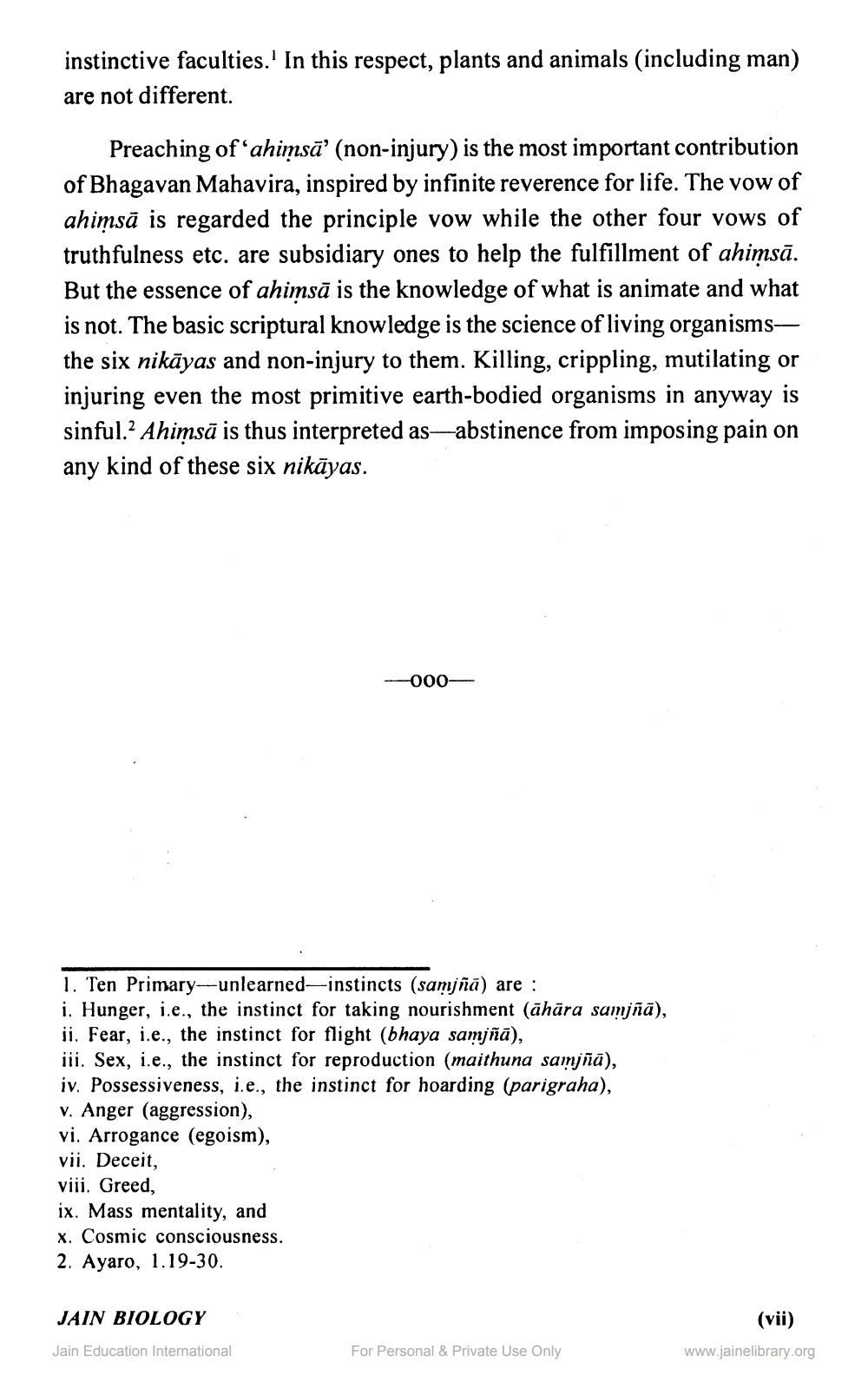Book Title: Jain Biology Author(s): Jethalal S Zaveri, Mahendramuni Publisher: Jain Vishva Bharati View full book textPage 8
________________ instinctive faculties. In this respect, plants and animals (including man) are not different. Preaching of‘ahimsā” (non-injury) is the most important contribution of Bhagavan Mahavira, inspired by infinite reverence for life. The vow of ahimsā is regarded the principle vow while the other four vows of truthfulness etc. are subsidiary ones to help the fulfillment of ahiņsā. But the essence of ahimsā is the knowledge of what is animate and what is not. The basic scriptural knowledge is the science of living organisms the six nikāyas and non-injury to them. Killing, crippling, mutilating or injuring even the most primitive earth-bodied organisms in anyway is sinful.? Ahimsā is thus interpreted as--abstinence from imposing pain on any kind of these six nikāyas. --000 1. Ten Primary-unlearned-instincts (samjñā) are : i. Hunger, i.e., the instinct for taking nourishment (āhāra samjñā), ii. Fear, i.e., the instinct for flight (bhaya samjñā), iii. Sex, i.e., the instinct for reproduction (maithuna samjñā), iv. Possessiveness, i.e., the instinct for hoarding (parigraha), v. Anger (aggression), vi. Arrogance (egoism), vii. Deceit, viii. Greed, ix. Mass mentality, and x. Cosmic consciousness. 2. Ayaro, 1.19-30. JAIN BIOLOGY (vii) Jain Education International For Personal & Private Use Only www.jainelibrary.orgPage Navigation
1 ... 6 7 8 9 10 11 12 13 14 15 16 17 18 19 20 21 22 23 24 25 26 27 28 29 30 31 32 33 34 35 36 37 38 39 40 41 42 43 44 45 46 47 48 49 50 51 52 53 54 55 56 57 58 59 60 61 62 63 64 65 66 67 68 69 70 71 72 73 74 75 76 77 78 79 80 81 82 ... 152
